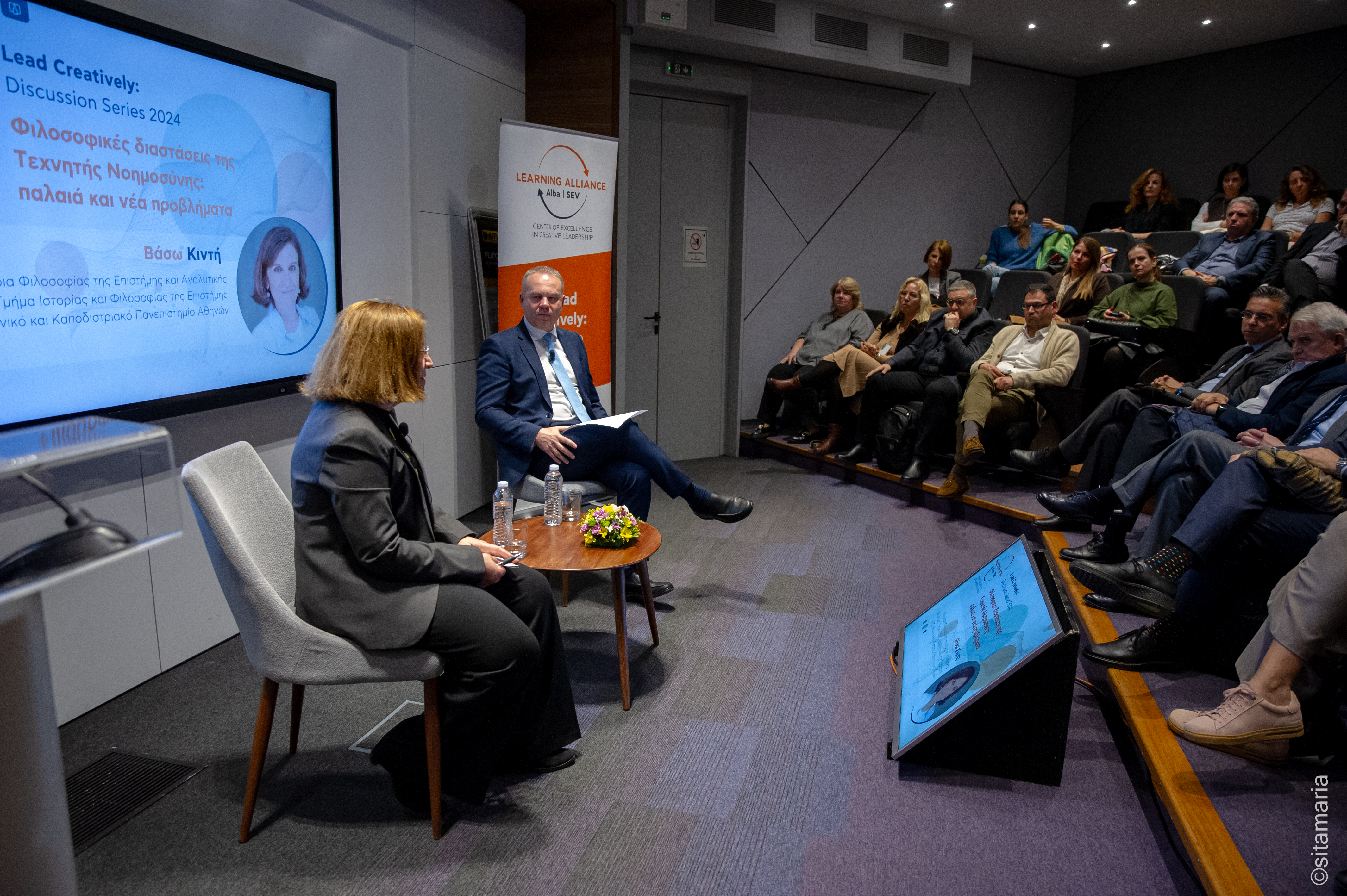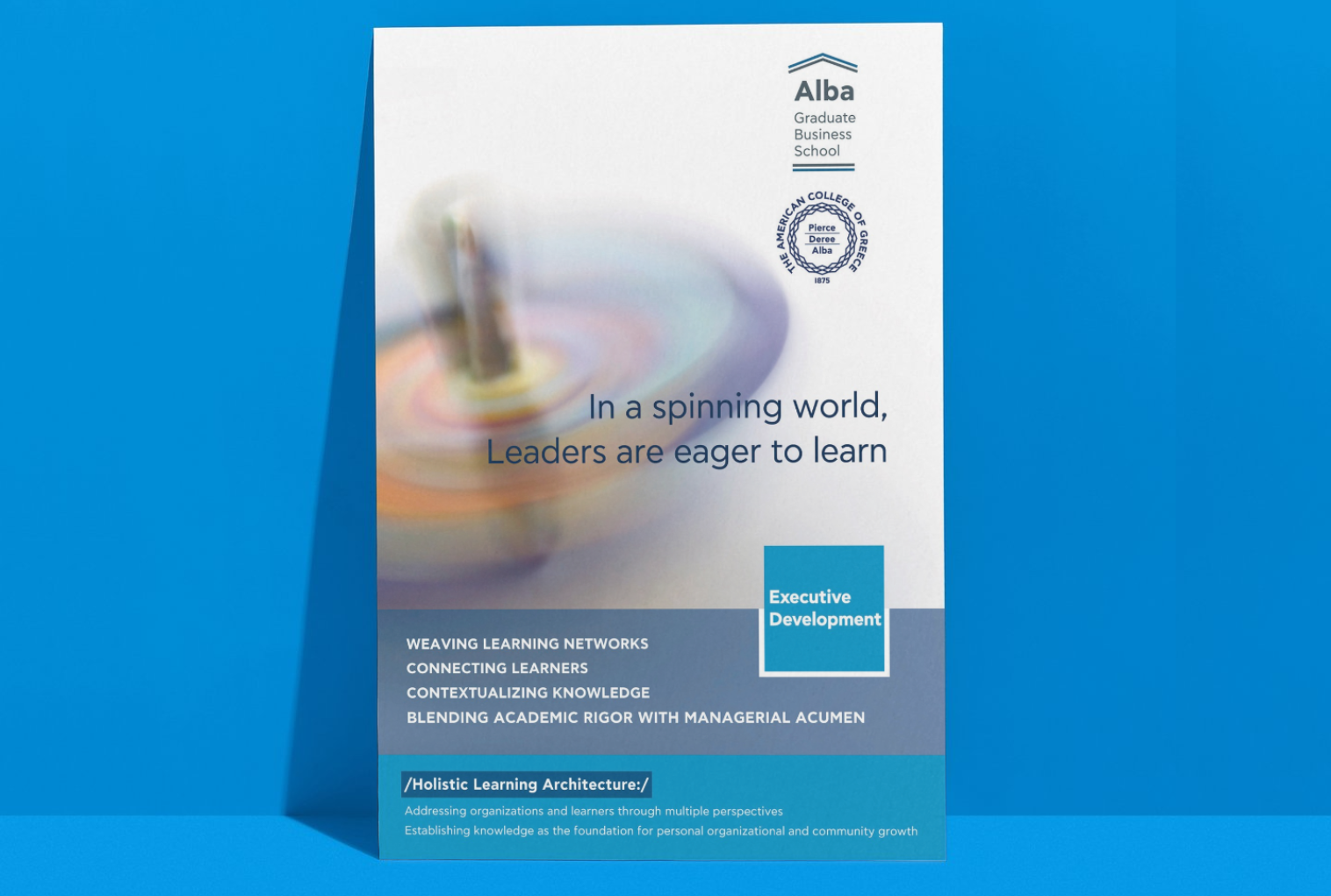Philosophical dimensions of AI: old and new problems

On Wednesday, December 11, 2024, we had the honor of welcoming Vasso Kindi, Professor of Philosophy of Science at the National and Kapodistrian University of Athens for the second Leading Creatively event of this academic year The event, hosted by the SEV Center of Excellence in Creative Leadership, brought together thought leaders, business professionals, and academics to discuss the intersection of artificial intelligence (AI), philosophy, and leadership.

Dora Oikonomou, Human Resources Director of SEV, shared her excitement about the event: "I'm thrilled to be here today. It’s an exciting time for Greece, as the country makes big strides in AI development, with major milestones like the creation of the ‘Daedalus’ supercomputer. According to a recent SEV survey, 70% of businesses recognize that artificial intelligence represents the future, yet only 12% report having integrated some form of it into their operations. Clearly, we have a long way to go—both in educating our executives and in shaping our strategic direction."

While welcoming participants, Professor Kostas Axarloglou discussed the broader implications of AI: "Artificial intelligence presents a complex challenge for humanity. Today’s discussion focused not just on its technological applications, but also on how AI prompts us to rethink leadership and the essence of human existence. We are proud to host events that integrate philosophy, management, and entrepreneurship."

Dr. Nikos Mylonopoulos, Director of the SEV Center of Excellence in Creative Leadership, welcomed Dr. Kinti, a Pierce alumna, with the following question: "Why discuss philosophy in a gathering of business people? As we become increasingly dependent on AI, we rarely pause to consider how it shapes our world and ourselves. As AI evolves, we must ask ourselves which human roles to preserve and which tasks we are willing to entrust to technology."

In her presentation, Dr. Kinti explored certain philosophical aspects of AI, highlighting that many contemporary issues—such as ethics, originality, and autonomy—have deep historical roots. She referenced figures like Leibniz and even excerpts from Homer’s Iliad, arguing that the idea of "intelligent machines" has been part of human thought for centuries. Dr. Kinti also discussed ethical challenges like data management and bias, raising questions about whether AI can truly understand or create original work. She called for a thoughtful, measured approach, acknowledging that while these challenges are significant, they are not entirely new.

The presentation addressed several ethical dilemmas related to AI, including how autonomous machines—such as driverless cars—should behave in morally complex situations and who should be held accountable for their choices. Dr. Kinti questioned whether machines should remain mere tools or if they could replace human jobs, potentially freeing up time for other pursuits. She also questioned our ethical obligations toward machines, expanding the traditional view that ethical duties apply only to moral beings, but now extend to art, the environment, and even AI.

The conversation also raised the issue of AI's potential impact on democracy, touching on risks like manipulation, misinformation, and surveillance capitalism. However, it was noted that technology can also enhance democratic participation and decision-making.
Drawing from both historical and philosophical perspectives, Dr. Kinti’s talk spanned a wide range of relevant insights, from Aristotle’s virtue ethics, to the role of big data in modern historiography. She emphasized how some scientists use big data not only to predict current trends but also to revisit the past.

A key point in the discussion was the limitations of large language models (LLMs). Dr. Kinti argued that LLMs do not truly understand language—they generate syntactically correct responses based on data patterns, but lack comprehension. Drawing on philosopher John Searle’s "Chinese Room" thought experiment, she illustrated that simply manipulating symbols doesn’t equate to understanding what the symbols refer to. Unlike humans, LLMs cannot experience meaning beyond syntax, highlighting the distinction between producing and understanding language.

The session concluded with a lively Q&A, where attendees had the opportunity to raise questions exploring issues such as AI’s role in the workplace, its legal status, its impact on human creativity, and its potential for societal change.


In closing, Dr. Mylonopoulos emphasized the importance of reflection: "Thanks to Professor Kinti’s guidance, today we had the opportunity to explore certain philosophical dimensions of AI. We promise to continue this conversation in future events. I’d like to extend my heartfelt thanks to all who participated."



You may watch the recording of the event below





